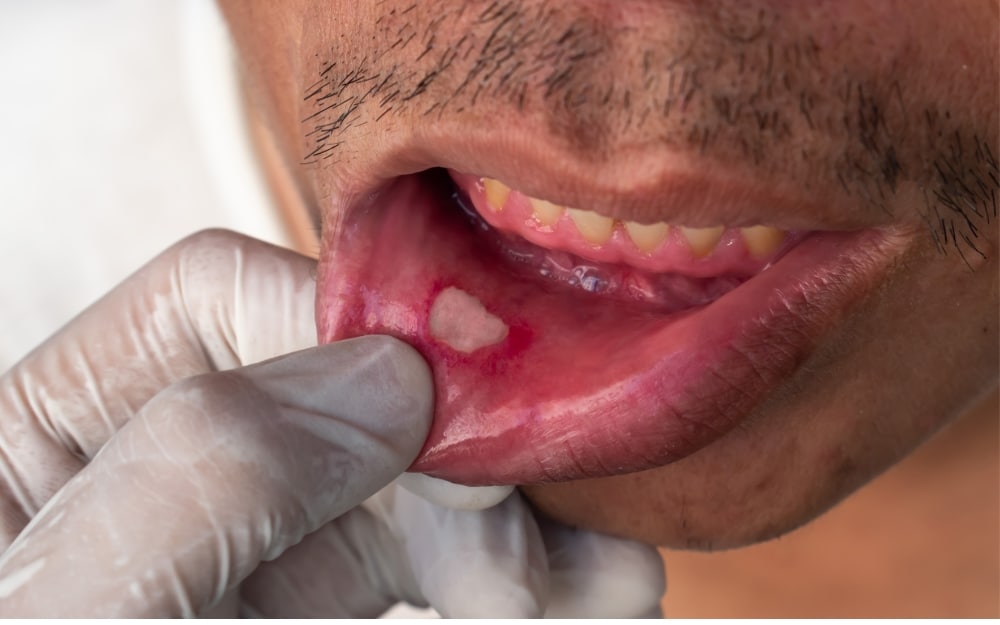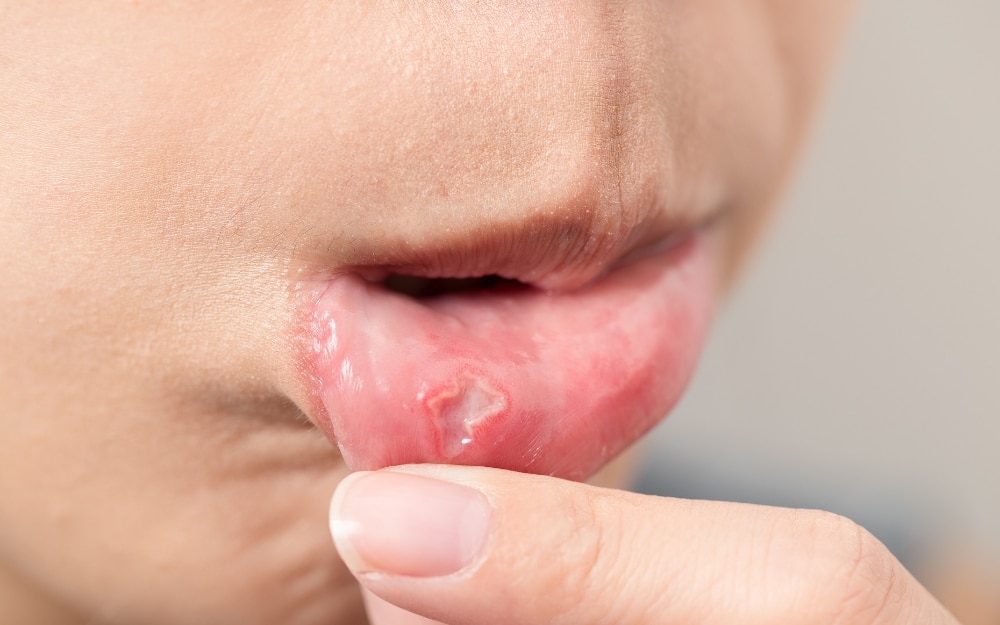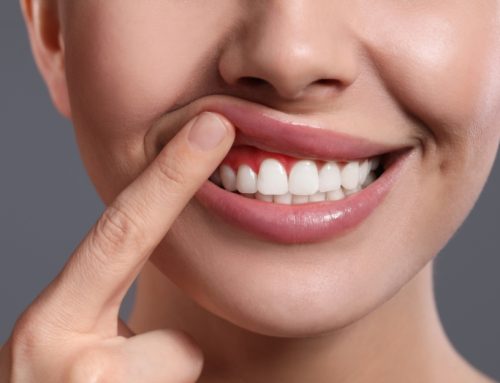Canker sores, also known as aphthous ulcers, are small open wounds that form in the mouth. They are often on the lip or cheek but may also form on the gums and they make eating, and sometimes even talking, painful. Roughly 1 in 5 people suffer from them regularly, and they are more common in women.
Minor canker sores are less than 1 centimetre across and will heal in about a week. They often appear about 3-4 times per year. Less common are major canker sores, which are larger, longer to heal, and may leave a scar. The least common are herpetiform cankers, which appear as tiny ulcers in a cluster. They are rare and usually heal in about 1 week.
What Causes Canker Sores?
Preventing canker sores is difficult because it is not known what actually causes them. There are some factors that might play a role however, including:
Injury – Injuries from a dental appliance, a sharp tooth, or accidentally biting your cheek may lead to the formation of a canker sore.
Allergies – Allergy to something you may have consumed or an ingredient in your toothpaste or mouthwash.
Bacteria – Heliobacter pylori, the bacteria that causes peptic (stomach) ulcers may be a factor.
High Acidity Fruits and Vegetables – prevent cankers soresCertain Foods such as acidic fruits and vegetables (citrus fruits, apples, strawberries).
Gastrointestinal Diseases – Having a gastrointestinal disease such as Crohn’s will make you more susceptible to getting canker sores.
Nutrition – Nutritional problems such as a lack of iron, zinc, or folic acid.
How to Treat Canker Sores

While any of these may be contributing factors, at other times they appear seemingly without reason. Over-the-counter treatments are available, with ingredients such as benzocaine and hydrogen peroxide, but there are also some home remedies that may help reduce pain and speed up the healing process. Keep in mind, however, that when you have concerns about your oral health, your first course of action should be to contact your dentist.
Salt Water – For many people, warm salty water is an old standby for mouth sores, and it may help dry out cankers. Dissolve one teaspoon of regular salt in warm water. Swirl the solution in your mouth for 15 to 30 seconds, then expectorate. Repeat every few hours if needed.
Alum Powder – This powder is made from potassium aluminum sulfate and is typically used to preserve foods and pickle vegetables. It has astringent properties and like salt, may help to shrink and dry out canker sores. Mix a tiny amount with a drop or two of water to create a paste, then dab it onto the canker sore. Leave on the sore for 1 minute, then rinse your mouth thoroughly. Repeat daily.
Aloe Vera – In order to relieve pain and accelerate healing, apply gel from the plant directly to the sore, or drink aloe vera juice.
Tea Tree Oil – Used for hundreds of years by indigenous peoples of Australia, tea tree oil is known to soothe skin and kill bacteria. It has now found its way into some toothpastes and mouthwashes. Add 5-10 drops to a glass of water, swish it around in your mouth, gargle, then expectorate. Rinse with warm water. Repeat 2-3 times per day until the canker has healed.
Coconut Oil – Anti-inflammatory and containing antimicrobial and antifungal compounds, coconut oil is gaining popularity as a home remedy for canker sores. Apply directly to the sore if possible. If you cannot make it stick, melt one tablespoon and place it in your mouth. Swish for 5-15 minutes, then expectorate.
Apple Cider Vinegar – Another popular home remedy for several ailments, apple cider vinegar may help to reduce your pain and kill bacteria. It may sting when coming in contact with the sore, however, so you may wish to consider another alternative if you find it painful. Mix one teaspoon with one cup of water, rinse for 30-60 seconds, then expectorate. Follow by rinsing with plain water to protect your enamel. Use once per day.
There are many home remedies that may prove helpful in healing canker sores. Some other products like clove oil may also be useful in providing pain relief.
To prevent canker sores, try to avoid mouth irritants such as spicy foods, aggressive brushing, and oral hygiene products containing sodium lauryl sulfate. A zinc deficiency may be addressed with supplements, but always be sure to follow directions for their use.
Although there is no cure for canker sores, you may be able to reduce their frequency by avoiding the most likely triggers and speed up healing with any of the above methods. Canker sores are an indication it might be time to see your dentist, here are 5 signs you need to see your dentist.
Contact us if you have any questions about treating canker sores.





